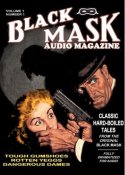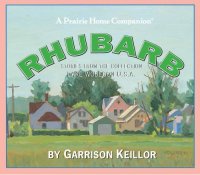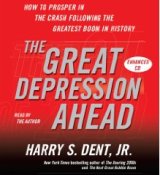February
2009
AUDIO BOOK REVIEWS
and An Interview with Author Harry S. Dent
by Jonathan Lowe
 Back in the golden age of radio (before
video killed the radio star) stories
were routinely dramatized for public
consumption. Use of the imagination
predated the now ubiquitous made-for-TV
movie. For an engaging return to yesteryear,
the creative minds over at Blackstone
have produced a first edition of THE
BLACK MASK AUDIO MAGAZINE, with stories
taken from the pages of the original
magazine of the 1930s and 40s, and including
hard boiled tales by Hugh B. Cave, Paul
Cain, Frederick Nebel, Reuben J. Shay,
William Cole, and the legendary Dashiell
Hammett. The stories are fully dramatized
with sound effects and period music,
as directed by veteran Yuri Rasovsky,
and with sound editing supplied by—among
others—Sue Zizza. The talented
cast is headed by GROVER GARDNER, and
includes Anthony Heald, Lorna Raver,
George Guidall, Richard Ferrone, Tom
Weiner, Christine Williams, Jeff Woodman,
Rochelle Savitt, Malcolm Hillgartner,
Richard Allen, Kaitlin Hopkins, William
Hughes, and Burt Ross. In one of the
best tales, "Pigeon Blood," a woman
with a dead man on her floor is asked
if the guy is drunk, and she replies,
"Hammered." When it turns out that the
hammer was hers, she admits, "I was
always good with tools." Twists turn
to double twists when, as in the short
piece "Taking His Time," a policeman
with a penchant for legal details has
no problem with. . .well, you'll just
have to take the time and hear for yourself.
Bravo to Blackstone's Hollywood Theater
of the Ear for bringing back a forgotten
genre with fresh new twists of dramatic
interpretation. The sound quality is
excellent, the acting superb, and the
stories themselves seem unpredictably
propelled within a backdrop of subtle
complexity. Also available on MP3 disk
for easy iPod downloading, the production
features "tough gumshoes, rotten yeggs,
and dangerous dames." Not to mention
those responsible already listed. (Blackstone
Audio; 5 hours unabridged)
Back in the golden age of radio (before
video killed the radio star) stories
were routinely dramatized for public
consumption. Use of the imagination
predated the now ubiquitous made-for-TV
movie. For an engaging return to yesteryear,
the creative minds over at Blackstone
have produced a first edition of THE
BLACK MASK AUDIO MAGAZINE, with stories
taken from the pages of the original
magazine of the 1930s and 40s, and including
hard boiled tales by Hugh B. Cave, Paul
Cain, Frederick Nebel, Reuben J. Shay,
William Cole, and the legendary Dashiell
Hammett. The stories are fully dramatized
with sound effects and period music,
as directed by veteran Yuri Rasovsky,
and with sound editing supplied by—among
others—Sue Zizza. The talented
cast is headed by GROVER GARDNER, and
includes Anthony Heald, Lorna Raver,
George Guidall, Richard Ferrone, Tom
Weiner, Christine Williams, Jeff Woodman,
Rochelle Savitt, Malcolm Hillgartner,
Richard Allen, Kaitlin Hopkins, William
Hughes, and Burt Ross. In one of the
best tales, "Pigeon Blood," a woman
with a dead man on her floor is asked
if the guy is drunk, and she replies,
"Hammered." When it turns out that the
hammer was hers, she admits, "I was
always good with tools." Twists turn
to double twists when, as in the short
piece "Taking His Time," a policeman
with a penchant for legal details has
no problem with. . .well, you'll just
have to take the time and hear for yourself.
Bravo to Blackstone's Hollywood Theater
of the Ear for bringing back a forgotten
genre with fresh new twists of dramatic
interpretation. The sound quality is
excellent, the acting superb, and the
stories themselves seem unpredictably
propelled within a backdrop of subtle
complexity. Also available on MP3 disk
for easy iPod downloading, the production
features "tough gumshoes, rotten yeggs,
and dangerous dames." Not to mention
those responsible already listed. (Blackstone
Audio; 5 hours unabridged) |
 Garrison Keillor may seem, to some,
a throwback to the age of Ozzie &
Harriet or Leave It to Beaver,
when television hadn't yet diminished
radio programming to the wasteland of
repetitive Top 40 and political talk
a la Rush Limbaugh. But if you've never
heard A Prairie Home Companion,
you've missed out on a true slice of
Americana. With his traveling road show,
still heard every week on NPR, Keillor
brings his quirky characters to life
on the stage, and all of them are funnier
than the folks you find these days at
your typical suburban shopping mall.
Take, for example, those living in Lake
Wobegon, Minnesota. In RHUBARB and other
audio productions taken from the show,
you learn about the luxury of rhubarb
pie (and why this "weed" is a secret
obsession), then you go on a vacation
with Myrtle and Florian (whose obsession
with thrift gets in the way of relaxation).
You discover the perils of prophecy,
and why March is the most restless month
in town, "a month God created to show
people who don't drink what a hangover
is like." Staring up at the vapor lights
of Our Lady of Perpetual Responsibility
with your mind's eye is somehow more
satisfying than seeing it on the boob
tube, too, although Garrison did produce
a movie starring Meryl Streep about
the road show—one which, ironically,
also starred Lindsay Lohan. Tune in,
or pop in a CD, and you'll discover,
as I did, that there are still people
living, even today, in a land that TV
forgot (except in syndication on the
Andy Griffith Show), and that
these folks are entertaining to hear
about because, as Keillor puts it, "our
women are strong, our children are above
average, and as for the men—well,
we could look worse." (Highbridge
Audio; 77 minutes unabridged)
Garrison Keillor may seem, to some,
a throwback to the age of Ozzie &
Harriet or Leave It to Beaver,
when television hadn't yet diminished
radio programming to the wasteland of
repetitive Top 40 and political talk
a la Rush Limbaugh. But if you've never
heard A Prairie Home Companion,
you've missed out on a true slice of
Americana. With his traveling road show,
still heard every week on NPR, Keillor
brings his quirky characters to life
on the stage, and all of them are funnier
than the folks you find these days at
your typical suburban shopping mall.
Take, for example, those living in Lake
Wobegon, Minnesota. In RHUBARB and other
audio productions taken from the show,
you learn about the luxury of rhubarb
pie (and why this "weed" is a secret
obsession), then you go on a vacation
with Myrtle and Florian (whose obsession
with thrift gets in the way of relaxation).
You discover the perils of prophecy,
and why March is the most restless month
in town, "a month God created to show
people who don't drink what a hangover
is like." Staring up at the vapor lights
of Our Lady of Perpetual Responsibility
with your mind's eye is somehow more
satisfying than seeing it on the boob
tube, too, although Garrison did produce
a movie starring Meryl Streep about
the road show—one which, ironically,
also starred Lindsay Lohan. Tune in,
or pop in a CD, and you'll discover,
as I did, that there are still people
living, even today, in a land that TV
forgot (except in syndication on the
Andy Griffith Show), and that
these folks are entertaining to hear
about because, as Keillor puts it, "our
women are strong, our children are above
average, and as for the men—well,
we could look worse." (Highbridge
Audio; 77 minutes unabridged) |
 Leaving yesteryear can be a pain, especially
when you consider our current economy.
There is a reason, after all, why Obama's
book was titled The Audacity of Hope,
and it's because there are larger trends
at work here which overshadow any Presidential
term. In his new book THE GREAT DEPRESSION
AHEAD author Harry S. Dent, Jr. outlines
these trends in startling detail, and
from a wider perspective than merely
one political season. Having successfully
predicted the crash of Fall 2008 years
ago, Dent was also the author of The
Great Boom Ahead, published in 1992,
when he stood virtually alone in forecasting
the unanticipated boom of the 1990s.
And now he is saying that the party
is over. Dent holds a Harvard MBA, is
a Fortune 100 consultant, and is president
of the HS Dent Foundation, whose mission
is to help business leaders understand
change. His analytical techniques have
allowed him to predict economic trends
with unprecedented accuracy, which is
why this latest book is such an eye-opener,
and is narrated by the author himself
on audio. Among the predictions being
made here is that we are at the end
of an historic boom cycle, and so while
the economy may appear to recover from
the subprime crisis and "minor recession"
by mid to late 2009, (given Obama's
deficit spending to aid infrastructure
and create jobs), it is actually "the
calm before the real storm." By 2010
America will enter a truly Great depression,
with stocks not reaching their lows
until 2012. Scared yet? Let's hope he's
wrong for once. Because this means that
housing prices will continue to fall
along with stocks, and so despite the
supposedly "low" valuations of today,
he advises selling now if you can, and
to rent, waiting to buy again after
the housing market hits bottom by 2012.
And there's more. A global bull market
will not return until 2020 at the earliest.
Still, there is a silver lining here.
According to Dent, there are buying
opportunities along the way, particularly
in long term bonds as inflation's brief
return will cause the Fed to raise interest
rates. Also, the depression will cause
Congress to act in restructuring entitlement
programs and to tax the rich more. An
enhanced CD includes a PDF file of various
charts and graphs, outlining the major
trends of the past, and extending them
into the future. State by state breakdowns
of population changes and market projections
are included, too. Bottom line? The
era of conspicuous consumption is over,
as leaders cut waste and fraud in an
effort to avoid the collapse of the
dollar. As all the bubbles pop, we will
all be forced to either adapt or perish.
(Simon & Schuster Audio; 2009; 6
hours abridged)
Leaving yesteryear can be a pain, especially
when you consider our current economy.
There is a reason, after all, why Obama's
book was titled The Audacity of Hope,
and it's because there are larger trends
at work here which overshadow any Presidential
term. In his new book THE GREAT DEPRESSION
AHEAD author Harry S. Dent, Jr. outlines
these trends in startling detail, and
from a wider perspective than merely
one political season. Having successfully
predicted the crash of Fall 2008 years
ago, Dent was also the author of The
Great Boom Ahead, published in 1992,
when he stood virtually alone in forecasting
the unanticipated boom of the 1990s.
And now he is saying that the party
is over. Dent holds a Harvard MBA, is
a Fortune 100 consultant, and is president
of the HS Dent Foundation, whose mission
is to help business leaders understand
change. His analytical techniques have
allowed him to predict economic trends
with unprecedented accuracy, which is
why this latest book is such an eye-opener,
and is narrated by the author himself
on audio. Among the predictions being
made here is that we are at the end
of an historic boom cycle, and so while
the economy may appear to recover from
the subprime crisis and "minor recession"
by mid to late 2009, (given Obama's
deficit spending to aid infrastructure
and create jobs), it is actually "the
calm before the real storm." By 2010
America will enter a truly Great depression,
with stocks not reaching their lows
until 2012. Scared yet? Let's hope he's
wrong for once. Because this means that
housing prices will continue to fall
along with stocks, and so despite the
supposedly "low" valuations of today,
he advises selling now if you can, and
to rent, waiting to buy again after
the housing market hits bottom by 2012.
And there's more. A global bull market
will not return until 2020 at the earliest.
Still, there is a silver lining here.
According to Dent, there are buying
opportunities along the way, particularly
in long term bonds as inflation's brief
return will cause the Fed to raise interest
rates. Also, the depression will cause
Congress to act in restructuring entitlement
programs and to tax the rich more. An
enhanced CD includes a PDF file of various
charts and graphs, outlining the major
trends of the past, and extending them
into the future. State by state breakdowns
of population changes and market projections
are included, too. Bottom line? The
era of conspicuous consumption is over,
as leaders cut waste and fraud in an
effort to avoid the collapse of the
dollar. As all the bubbles pop, we will
all be forced to either adapt or perish.
(Simon & Schuster Audio; 2009; 6
hours abridged) |
| Excerpt from my recent interview
with Dent: LOWE: We'll
probably remember 2008 as the year
of the Great Banking Crisis, following
the subprime bubble. Why do you think
so many people—both professional
and non—were fooled into believing
that the common sense adage "what
goes up must come down" somehow did
not apply to housing prices?
DENT: The hardest thing to
convince people of in the last several
years was that house prices could
go down a lot! We would show the example
from 1925 to 1933 and 1991 to 2005
in Japan. People have seen real estate
go up their entire life and with only
minor corrections. People can believe
our predictions for another major
stock or oil crash, but not real estate.
Well, obviously, now they do believe
it. We are saying that house prices
nationally have to go down 50% to
55%, or back to at least the levels
in 2000. Hence, there is another major
crash in housing prices ahead as well
with the worst slide likely from early
2010 into mid 2011. We don't recommend
buying real estate again until around
late 2012 or early 2013. The bubble
in real estate is the greatest in
U.S. history. We wouldn't see as large
a decline if the bubble had not been
so extreme. Housing prices only went
down around 30% in the Great Depression
as there wasn't a major bubble before
the deflation process set in.
LOWE: We still seem to be
victims of our own near-sightedness,
somehow believing that Washington
will save us. Meanwhile, we save very
little (if at all) for our own retirements,
while the Chinese save a lot. As companies
and markets hunker down for the lean
years ahead, what can the average
person do to survive or prosper in
such an environment?
DENT: First of all, the government
cannot save us. They did not create
this boom, the baby boom generation
did—and they can't stop the
steep slide in spending ahead as that
generation slows in their spending
and accelerates in their retirement.
At best we will get a strong temporary
rebound, but that will be met with
inflation pressures and accelerating
oil and commodity prices again. At
worst, and more likely, all of this
stimulus will only create a modest
rebound and that will be seen as a
sign of serious weakness with the
stock markets and US dollar crashing
again. The best thing people can do
is to save and to convert their stocks
and excess real estate into cash during
the temporary rebound in 2009. Our
target for the Dow is just below 11,000
between April and July. Sell your
investments and wait for all assets
to deflate into late 2010 to late
2012. Then buy at the greatest bargains
of your lifetime. |
 Finally, speaking of surviving, Joan
Rivers is not averse to turning back
the clock through the miracles of plastic
surgery. In her new audiobook, which
she also narrates, Joan advises women
how, when, and why to choose that nip
and tuck, with the aid of coauthor Valerie
Frankel. Naturally men can be blamed
for this obsession with beauty, and
so the title is MEN ARE STUPID...AND
THEY LIKE BIG BOOBS. Now, I've been
told that women dress for other women,
but I must admit that maybe it's because
men don't really seem to care what a
woman is wearing, they're too busy trying
to imagine what's underneath. Still,
in my opinion, men are stupid because
they buy big boob tubes to watch Baywatch
reruns. Yet Joan has a point, and she
has no trouble poking fun at both the
men and women involved, either—especially
those in Hollywood who routinely walk
the red carpet. How sad it is that the
public still embraces this last and
so widely accepted prejudice against
aging. In the meantime, laugh and do
something about it, Joan seems to say.
This sometimes funny audiobook is recommended
mainly for those who are considering
plastic surgery, as it provides information
on how to find the right doctor, with
horror stories about those who didn't
shop well. A better choice, of course,
would be to just accept who you are,
and live with it. The problem is, given
our obsession with youth, can you afford
to accept what other people, men included,
may think or not think? (Simon &
Schuster Audio; 6 hours abridged)
Finally, speaking of surviving, Joan
Rivers is not averse to turning back
the clock through the miracles of plastic
surgery. In her new audiobook, which
she also narrates, Joan advises women
how, when, and why to choose that nip
and tuck, with the aid of coauthor Valerie
Frankel. Naturally men can be blamed
for this obsession with beauty, and
so the title is MEN ARE STUPID...AND
THEY LIKE BIG BOOBS. Now, I've been
told that women dress for other women,
but I must admit that maybe it's because
men don't really seem to care what a
woman is wearing, they're too busy trying
to imagine what's underneath. Still,
in my opinion, men are stupid because
they buy big boob tubes to watch Baywatch
reruns. Yet Joan has a point, and she
has no trouble poking fun at both the
men and women involved, either—especially
those in Hollywood who routinely walk
the red carpet. How sad it is that the
public still embraces this last and
so widely accepted prejudice against
aging. In the meantime, laugh and do
something about it, Joan seems to say.
This sometimes funny audiobook is recommended
mainly for those who are considering
plastic surgery, as it provides information
on how to find the right doctor, with
horror stories about those who didn't
shop well. A better choice, of course,
would be to just accept who you are,
and live with it. The problem is, given
our obsession with youth, can you afford
to accept what other people, men included,
may think or not think? (Simon &
Schuster Audio; 6 hours abridged) |
|